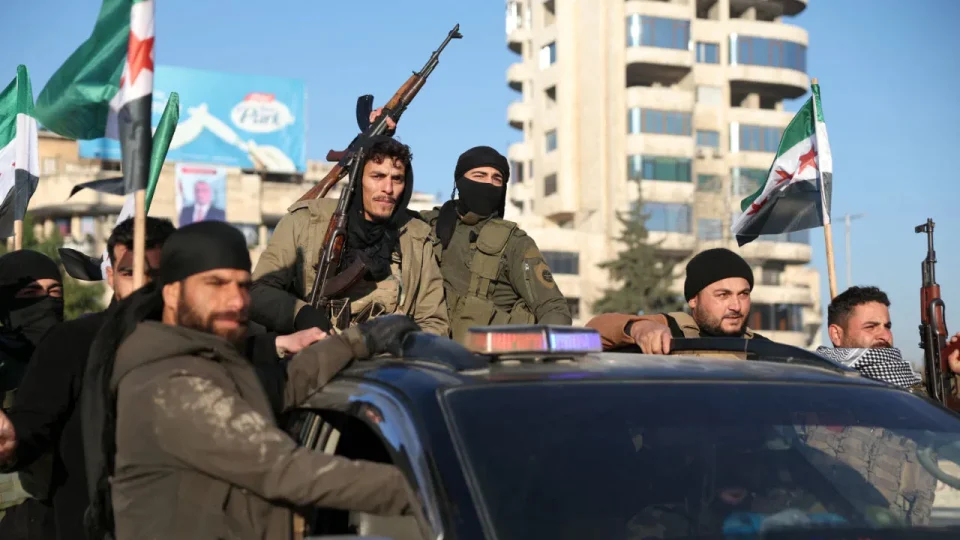Iran has reiterated its support for the Syrian government as insurgents have swiftly taken control of much of Aleppo, Syria’s second-largest city, along with nearby towns and villages.
“We firmly support the Syrian army and government,” Iranian Foreign Minister Abbas Araghchi stated, according to the state-run IRNA news agency, as he headed to Damascus on Sunday. “The Syrian army will once again achieve victory over these terrorist groups, as it has in the past,” he added.
These comments follow reports from the Syrian Observatory for Human Rights, a London-based war monitor, that insurgents affiliated with Hayat Tahrir al-Sham have captured Aleppo International Airport. The Observatory indicated that the group shared images from the airport, marking it as the first international airport to fall into insurgent hands. They also noted that insurgents now control the majority of Aleppo after forcing local officials and police to retreat from the city center.
In response to the insurgent advance, Russian and Syrian air forces conducted strikes on rebel-held areas in Idlib on Sunday, according to the Observatory and Syrian state media, marking the second consecutive day of intensive bombings aimed at repelling insurgents.
The ongoing clashes have resulted in at least 347 deaths, including 40 civilians, based on the monitoring group’s on-the-ground network. Among the civilian casualties are five children and three women, victims of bombardment and airstrikes.
U.S. National Security Advisor Jake Sullivan expressed concerns on NBC News’ “Meet the Press,” stating that the U.S. has classified Hayat Tahrir al-Sham as a “terrorist enemy.” He called for the full implementation of U.N. Security Council resolutions to help restore peace and stability in Syria.
These clashes threaten to worsen Syria’s dire humanitarian crisis, which remains one of the worst globally following 13 years of civil war, an uprising that began in 2011 against Assad’s authoritarian regime and has since claimed approximately half a million lives.
The recent offensive also raises questions about the preparedness of Assad’s armed forces. In a statement released through state media, Assad vowed that Syria would continue to defend its stability and territorial integrity against “terrorists and their supporters.” He asserted that Syria would prevail despite the intensifying attacks.
On Sunday, the Observatory reported that Assad’s forces were mobilizing large reinforcements and establishing defensive positions around several cities and villages in Hama Governorate, located south of Aleppo.
Iran’s strengthened commitment to support Assad highlights the geopolitical stakes in the Syrian conflict, revealing a complex interplay of rivalries, factions, and foreign interventions that continue to fuel Syria’s turmoil. While Assad currently controls about 70% of Syrian territory, various opposition groups, Kurdish forces, and foreign nations, including the U.S. and Turkey, maintain control over the remaining areas.
Tehran views Syria as a vital component of its regional strategy, providing a crucial land corridor to Hezbollah in Lebanon and serving as a buffer against Israeli influence.
Iran’s backing mirrors that of Russia, which played a significant role in shifting the war’s momentum during the 2016 Aleppo battles between government forces and rebel fighters, enabling Assad to solidify his control over strategic areas. Moscow’s involvement also solidified its military presence in Syria, including the naval base in Tartus, while reinforcing Assad’s power.
Turkey, a prominent supporter of Syrian opposition groups, has recently indicated that its diplomatic efforts have failed to halt government assaults on opposition-held territories, which violate a de-escalation agreement it established alongside Russia and Iran. Nonetheless, Turkey’s primary focus remains on undermining Kurdish rebel groups along its borders, viewing Syrian Kurdish fighters as an extension of the separatist Kurdistan Workers’ Party (PKK)—a group that has sought autonomy in southeastern Turkey since the 1980s, resulting in tens of thousands of deaths.
The United States opposes both Assad and the Russian and Iranian influence in Syria, yet it has allied itself with Syrian Kurdish forces, despite their conflict with Turkey, a NATO ally.
Sullivan remarked that it was predictable that rebels would attempt to exploit the distractions facing Iran, Russia, and Hezbollah due to other ongoing conflicts.
In Aleppo, residents reported that schools and government offices were closed on Saturday, with many people opting to stay indoors, according to Sham FM Radio, a pro-government station, though bakeries remained open.
The U.N. Office for the Coordination of Humanitarian Affairs stated on Friday that the two key public hospitals in Aleppo are filled to capacity, while many private facilities have shut down, exacerbating the humanitarian crisis.
Credit: NBC News




